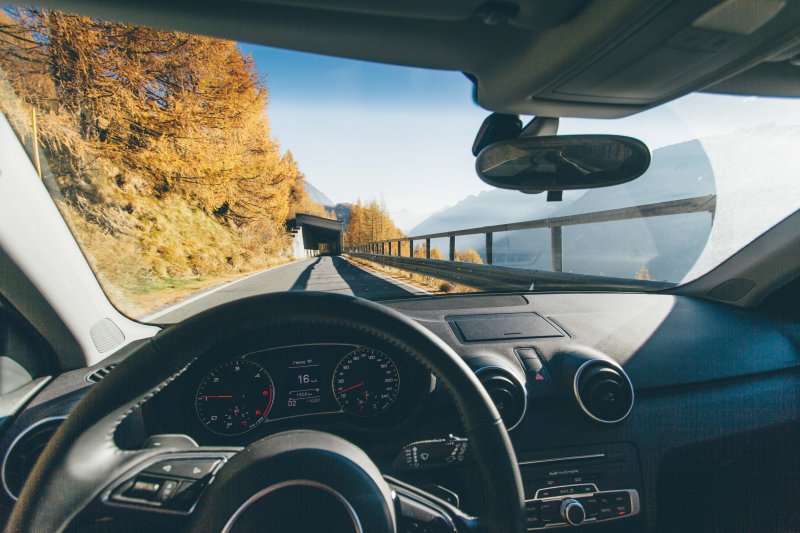What Happens if a Self-Driving Uber is in a Crash?

Car accidents have been occurring since the early 1900s; we are over 100 years into assigning liability and designating fault in these accidents, and insurance companies are still operating under tried and true policies while basic negligence laws remain unchanged. As more and more drivers entered the roadways and cars became more and more autonomous, the number of accidents increased. Now, we have entered a period where millions of cars are on the road with chauffeurs like taxicabs and Uber drivers – and we are on a technological advancement that will allow cars to eventually be wholly autonomous.
Currently, Tesla’s self-driving cars are street legal, but they require an attentive driver at all times because of how novel the technology is. There is no telling yet as to how dangerous these cars may actually be. Uber, having already revolutionized one form of travel, is looking to do so with another; it wants to introduce self-driving cars to its customers as a service, allowing them to be picked up by a driverless vehicle and transported to their destinations. Uber already experimented with autonomous vehicles, but the result was not positive: the SUV that was commissioned to test drive eventually crashed, and as a response, Uber pulled all of its self-driving cars from the road.
This leads to a very important question: What happens if a self-driving Uber is in a crash?
Uber Insurance Information
We know what happens if an Uber driver gets into a crash while a passenger is riding inside of it or if the driver is en route to a passenger. Uber insures its drivers for up to $1,000,000 in liability, and this coverage extends to other affected drivers, as well as to any passengers or customers in the car. All parties are covered by Uber if the fault is assigned to the Uber driver (and his insurance policy won’t cover it); if another vehicle causes the accident, that driver’s auto insurance policy will be taken into account. If his policy is too low to cover the damages, Uber’s underinsured/uninsured motorist coverage will take care of the difference.
Uber did not always have this policy, however. After a young girl was killed by an Uber driver who was searching for a ride, groups pushed back against Uber’s lack of insurance coverage for its drivers. State law eventually decreed that rideshare companies must provide its drivers with coverage, and thus, the $50,000 (for idle states while waiting for a ride request) and $1,000,000 (en route to a passenger and during the fare) policies were enacted. Almost from the beginning, law groups began litigating claims that came against Uber; claims that were filed by passengers, Uber drivers, and other individuals on the road. Now, they are faced with a new challenge.
The Changing Landscape
All of the individuals involved in an Uber crash, including the company, have specific auto insurance policies they use. Self-driving cars will eventually have no one to pilot them, which means there are only two options to file a claim against: the company utilizing the vehicle for commercial use or the manufacturer of the vehicle. Experts in the insurance field, as well as in law and the automotive industry, have acknowledged that liability laws are going to change – or at the very least, have a very large update.
Self-driving cars use data, analytics, road maps, and sensors to determine the status of the roads around them and how safe it is to drive. Accessing this data, however, may be a problem; the manufacturer will likely not want to hand out sensitive information where it can potentially be distributed. Insurance agents will have to find a different way to determine why the car made its decision if it cannot acquire the necessary information or they will have to rely on lawmakers to introduce a law that says manufactures must provide the information in the event of an accident.
In terms of compensation, you will likely be able to receive the same kinds of damages that you would receive in any other type of lawsuit stemming from a car crash. Your medical bills of past and future could be covered, as well any damaged property; your lost wages could also be reimbursed, and your emotional pain and suffering could be compensated as well. The biggest question will be who is responsible to pay for it?
Some lawyers who deal with Uber accidents already have guesses. If the operating system of the vehicle is to blame, the manufacturer of the automobile may be the one to bear the brunt of the liability, which has not happened en masse throughout the history of cars. Recalls of specific parts on certain models of vehicles have happened, but by and large, the majority of car crashes were due to driver negligence as opposed to manufacturer errors. If no issues can be found, the only other available party to be held responsible would be Uber, which is distributing the vehicles for commercial use.
These issues will very likely have more concrete answers in the next few years as self-driving cars become more and more common the road.
More to Read:
Previous Posts:







